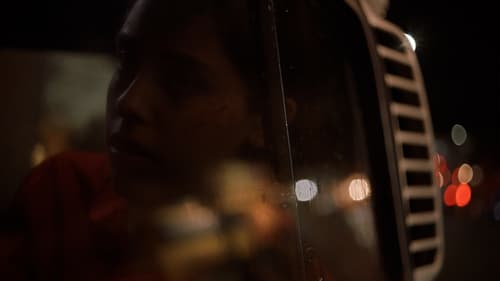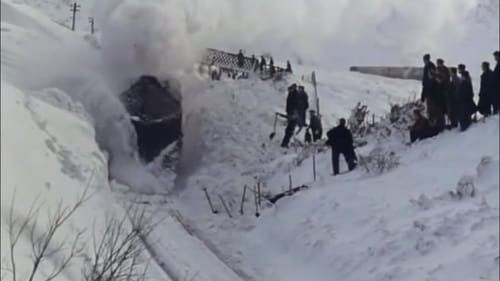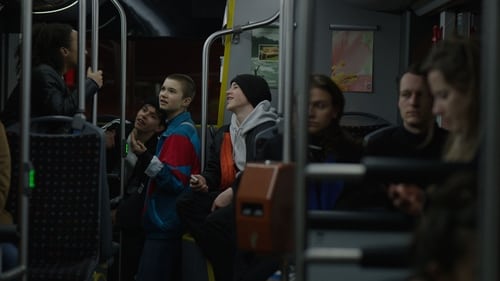Cesta do práce (1966)
Gênero : Documentário
Runtime : 0M
Director : Josef Kořán
Escritor : Josef Kořán
Sinopse

The remarkable true story of Darius McCollum, a man with Asperger's syndrome whose overwhelming love of transit has landed him in jail 32 times for the criminal impersonation of NYC subway drivers, conductors, token booth clerks, and track repairmen.

Since World War II North Americans have invested much of their newfound wealth in suburbia. It has promised a sense of space, affordability, family life and upward mobility. As the population of suburban sprawl has exploded in the past 50 years Suburbia, and all it promises, has become the American Dream. But as we enter the 21st century, serious questions are beginning to emerge...

A woman stalked by depression makes some extreme decisions.

A short experimental film by Japanese underground filmmaker Shozin Fukui. The film follows a young woman on the Tokyo subway, who may be possessed.

Miranda, the Manchester Acatitla forward, returns home after a victorious match. On her way back, she faces dangers off the court.

Comprising train and track footage quickly shot just before a heavy winter's snowfall was melting, the multi-award-winning classic that emerged from the cutting-room compresses British Rail's dedication to blizzard-battling into a thrilling eight-minute montage cut to music. Tough-as-boots workers struggling to keep the line clear are counterpointed with passengers' buffet-car comforts.

"The End of the Line - Rochester's Subway" tells the little-known story of the rail line that operated in a former section of the Erie Canal from 1927 until its abandonment in 1956. Produced in 1994 by filmmakers Fredrick Armstrong and James P. Harte, the forty-five minute documentary recounts the tale of an American city's bumpy ride through the Twentieth Century, from the perspective of a little engine that could, but didn't. The film has since been rereleased (2005) and now contains the main feature with special portions that were added as part of the rereleased version. These include a look at the only surviving subway car from the lines and a Phantom tun through the tunnels in their abandoned state, among others, for a total of 90 minutes of unique and well preserved historical information.


It's 10:47 pm on a bus somewhere in a city. A few teenagers are listening to music and talking loudly. The other passengers look languidly out the window or at their cell phones. A drunk man gets in and joins the teenagers; the mood starts to shift.

Transport is a city’s living, beating soul, as lovingly depicted in A Way We Go, a documentary feature by Jacqui Hicks. With an unconventional format emphasising the wisdom and emotions of everyday people, it captures a bubbling flow of ideas and images with a vivid dash of humanistic humour.

A documentary exploring the Beavercreek-RTA dispute.

No Measure of Health profiles Kyle Magee, an anti-advertising activist from Melbourne, Australia, who for the past 10 years has been going out into public spaces and covering over for-profit advertising in various ways. The film is a snapshot of his latest approach, which is to black-out advertising panels in protest of the way the media system, which is funded by advertising, is dominated by for-profit interests that have taken over public spaces and discourse. Kyle’s view is that real democracy requires a democratic media system, not one funded and controlled by the rich. As this film follows Kyle on a regular day of action, he reflects on fatherhood, democracy, what drives the protest, and his struggle with depression, as we learn that “it is no measure of health to be well adjusted to a profoundly sick society.”

Drivers of urban public transport in Bogotá do not receive a fixed salary¸ only a percentage per passenger picked up. Through the testimony of two champions of this daily war¸ an unpleasant daily life is shown¸ distressing and dangerous¸ both for the users and for the drivers themselves los and from which the only ones who benefit are the great transport entrepreneurs¸ true architects of a bloody war in which the State is hardly an indolent spectator.

In this short a tram ride through Amsterdam in the 1930's shows how close but yet separated the rich and very poor live in the metropole.

A young man in a tram is asking a bit too much from a stranger.









